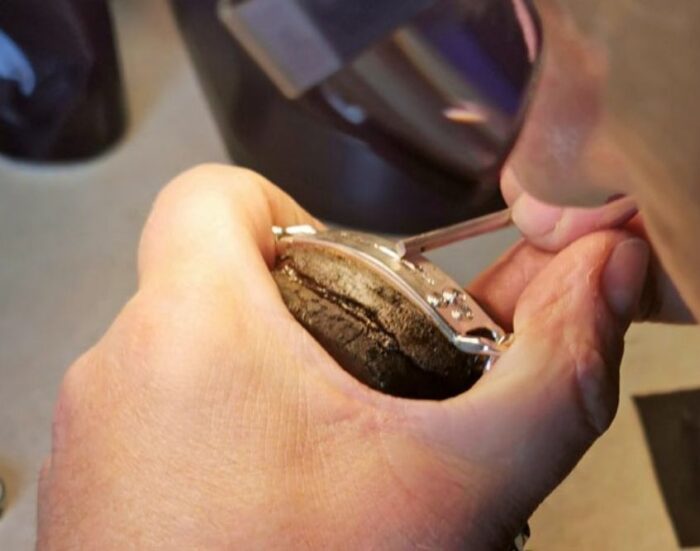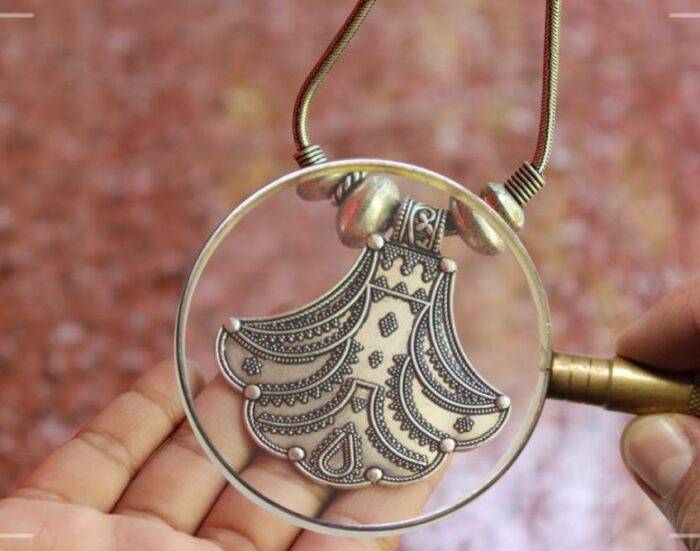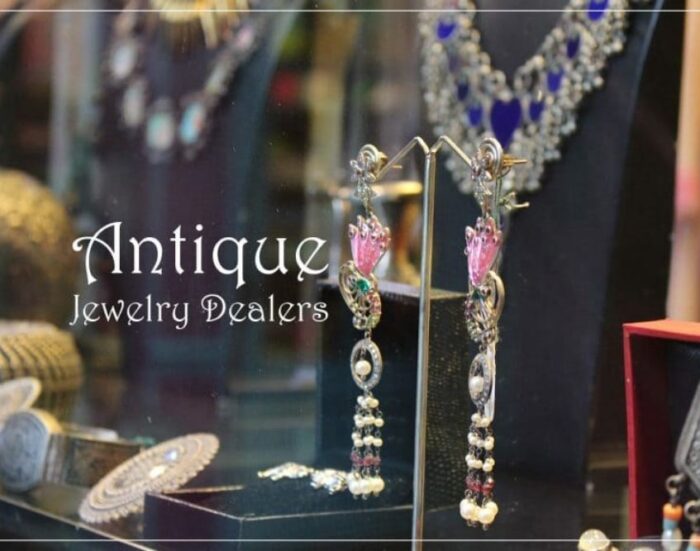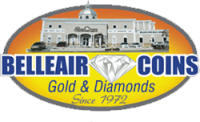Learn Engraving & Etching Techniques from Jewelry Appraisal Experts
Engraving and etching, two popular techniques in jewelry making, are not just for the experts. These techniques, which can transform a simple piece of metal into a work of art, can be learned by anyone with the right guidance. That’s why attending workshops or learning from experts in jewelry appraisal is an excellent way to gain insight into the process. Professionals can equip you with the knowledge of the proper tools, the best materials to work with, and the techniques needed to create beautiful designs that can add character and personality to any piece of jewelry.
As a non-expert, I found it challenging to differentiate between engraving and etching. To gain a deeper understanding, I decided to visit a local jewelry appraisal. The appraiser’s insights into the intricate work of engraving and etching, and how they significantly impact jewelry design, were enlightening. Let’s delve into these techniques further…
What is engraving?
Engraving, a meticulous and precise process, involves cutting or carving a design, image, or text onto a hard surface such as metal, wood, or glass. The engraved design, whether decorative or functional, is often used for creating personalized gifts, jewelry, signage, and artwork. This art form, whether done by hand or with a machine’s assistance, demands a high level of skill and precision to produce a top-notch result, showcasing the artistry and craftsmanship involved.
In this era of technological advancements, laser engraving has emerged as a game-changer. This innovative technique, which has made engraving easier and more efficient, involves heating up the laser to create cavities that reveal the image or text more easily on jewelry or silverware pieces, sparking fascination and curiosity among engravers.
What is etching?
Etching, a time-honored technique, is a testament to the artistry and tradition of creating markings on silver or gold jewelry. The process entails preparing the metal and drawing markings using acid-resistant wax. When acid is applied to the metal, it creates visible marks on the surface, a process that has been passed down through generations, adding depth and history to this technique. This historical significance of etching is a reminder of the rich heritage and craftsmanship that forms the foundation of the jewelry industry.
Antique jewelry appraisers have been informed about a new laser etching technique. This technique involves using a laser to wipe the surface of the metal without cutting it, and then drawing intelligent markings on it. It’s a non-invasive method that allows for intricate designs without damaging the metal.
Significant Differences Between Engraving And Etching.
From a vintage jewelry appraisal, I learned that the main distinction between these techniques is that engraving is a physical process, and etching is a chemical process. An engraver cuts down the surface with a cutting tool to make a mark, and an etcher burns out the surface to make a mark. This clear distinction is crucial for understanding the unique characteristics and applications of each technique.
If talking about laser technology, here are a few significant points to discuss in depth:
Marking shape-
When processing creates a shallow-shaped marking,
It discerns canonical-shaped markings.
Durability-
Etching, when done, doesn’t have a deep mark as compared to engraving. That’s why engraving is more durable than the etching process and lasts for a longer duration of time.
Versatility-
The most fascinating aspects of etching is its versatility. It can be applied to a wide range of materials, including metals, plastics, lead, glass, wood, and even paper. This adaptability opens up a world of creative possibilities in the realm of jewelry design, allowing artisans to experiment with different materials and create unique, innovative pieces that push the boundaries of traditional jewelry making.
Engraving is done only on plated metals, ceramics, steel, aluminum, stones, etc.
Innovative Techniques—An Important Need For The Jewelry Industry!
According to jewelry appraisers, all these techniques serve the same purpose, but the material, durability, versatility, and design requirements differ, making them essential in the jewelry industry. In the world of innovation, every industry is trying to create new inventions to benefit the environment and our growth cycle. The jewelry industry is no exception, as innovative techniques are crucial to meeting the needs and requirements of consumers.
Why Contacting a Reputable Antique Jewelry Appraiser is a Wise Choice
Whether you have been gifted your great-aunt’s antique jewelry, have been collecting and are ready to sell, or have another story behind your selling, it’s a smart move to get an antique jewelry appraisal. There is a myriad of reasons why going with a professional appraisal from someone who specializes not only in antiques, but antique jewelry. Here’s how to find the best reputable antique jewelry appraiser and why you should get one.
Why Do You Need an Antique Jewelry Appraiser?
The process of appraising antique jewelry is a thorough one that will tell you many things about your treasure. Your appraiser will determine the quality, the age, hopefully the location the piece hails from or at least what country or vicinity. Values will be assigned for the item based on the quality of various elements. They will also weigh it. A document will be created which will describe what was determined during the appraisal.
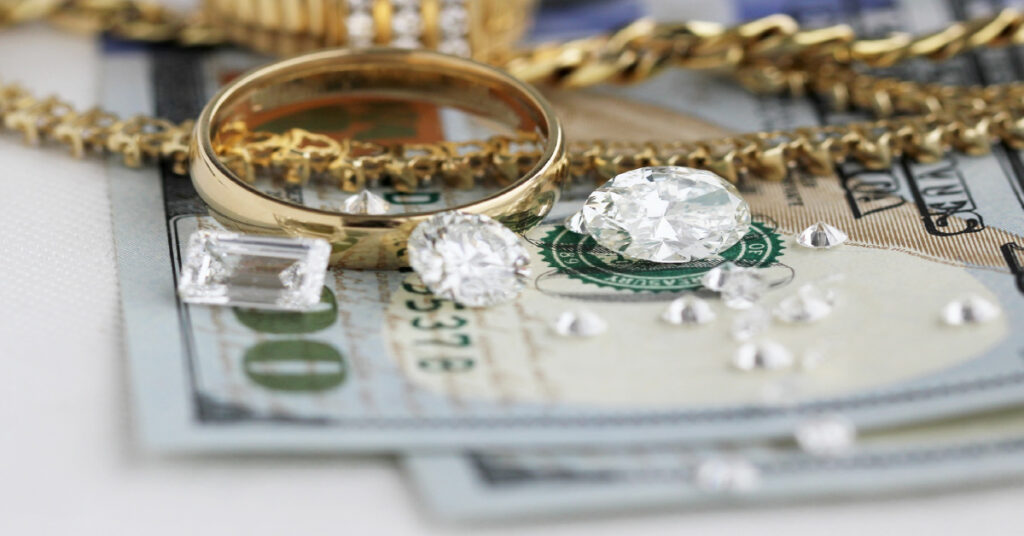
It takes a skilled appraiser who is knowledgeable in jewelry and in antiques to assess the value of antique jewelry. Anyone who is not trained will merely be guessing.
Imagine if you take your valuable antique jewelry to someone who is a crook. They may switch your piece or even tell you it is fake and offer to buy it for next to nothing. Not only do you need an antique jewelry appraiser, you need an honest one.
Do keep in mind that an antique jewelry appraisal can take place for a variety of reasons other than for the purpose of selling. To have your jewelry insured, your insurance company will ask for it to be appraised. In addition, jewelry is sometimes appraised when there is a liquidation due to bankruptcy. Whatever the case, getting a dependable appraiser who is an expert in both jewelry and antiques is priceless.
Local Jewelry Appraisal
When you are looking for an antique jewelry appraiser, it’s a great idea to go local. Simply conduct a search online for “antique jewelry appraisal near me” and you’ll find a list of appraisers. Sift through them to find those who are experts in antique jewelry appraising.
Past that, you will want to check to see how long the business has been around. Ask for references and see if they have an online presence. What is their reputation with local business authorities and the Better Business Bureau? Once you choose the top contenders, contact each of them. If you are treated rudely, don’t pursue. Those who earn the privilege of appraising your jewelry will be trustworthy and courteous. Choose the best local jewelry appraisal offer and if you are ready, go ahead and sell.
Vintage Jewelry Appraisal Online Free
Acquiring a vintage jewelry appraisal online free of charge is a cinch. There are many sites that offer such a deal. You want to be sure the appraiser you are dealing with has an upstanding reputation that’s verifiable and knowledge that is proven with certification. The more you can find out about the business or individual, the less risky your appraisal will be.
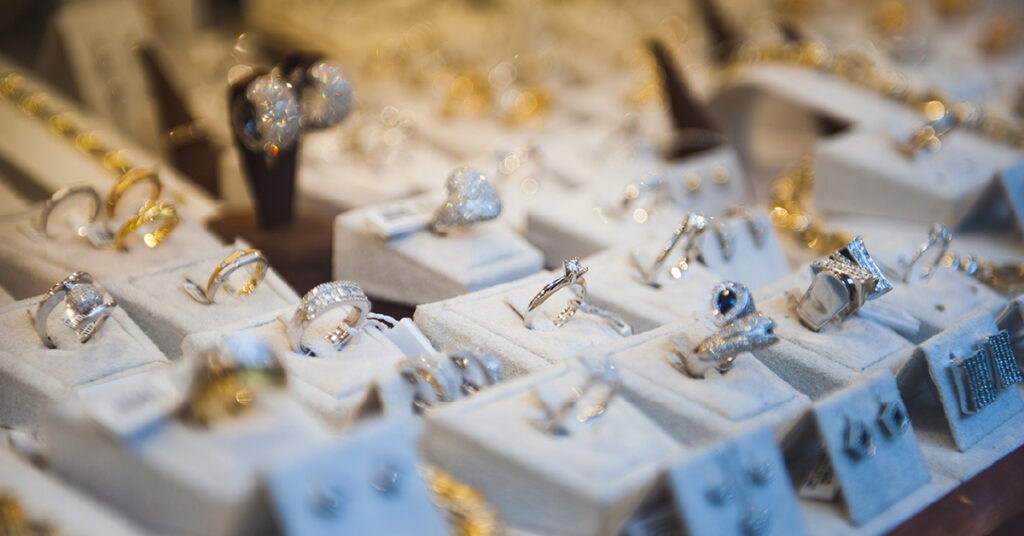
The way an online vintage jewelry appraisal works is that you usually contact the appraiser and are asked to create a complimentary account. You’ll answer some questions about your jewelry and upload some photos too. Antique jewelry experts will appraise your item and you’ll receive a written document stating the value and usually, you’ll be made an offer to sell your antique jewelry.
Ready to For Your Antique Jewelry Appraisal?
If you are needing a local jewelry appraisal and live in the Florida area, or an online appraisal for free, be sure to check out Antique Jewelry Buyers. In business since 1972, Antique Jewelry Buyers has some of the best expert antique jewelry appraisers in the industry. Their superior service is world renown and their integrity is unmatched. When you’re ready for your appraisal, you can trust the professionals at Antique Jewelry.
Qualities To Look Into A Reputable Antique Jewelry Appraiser
Antique jewelry buyers aren’t all cut from the same mold. Some operates their jewels dealing service with the utmost integrity, others are not. It’s imperative to know the difference. And, these practices can make you knowledgeable and will protect you from getting tricked by scammers.
Read on to learn what qualities an reputable jewelry appraiser should have to be honest and reliable which is so important.
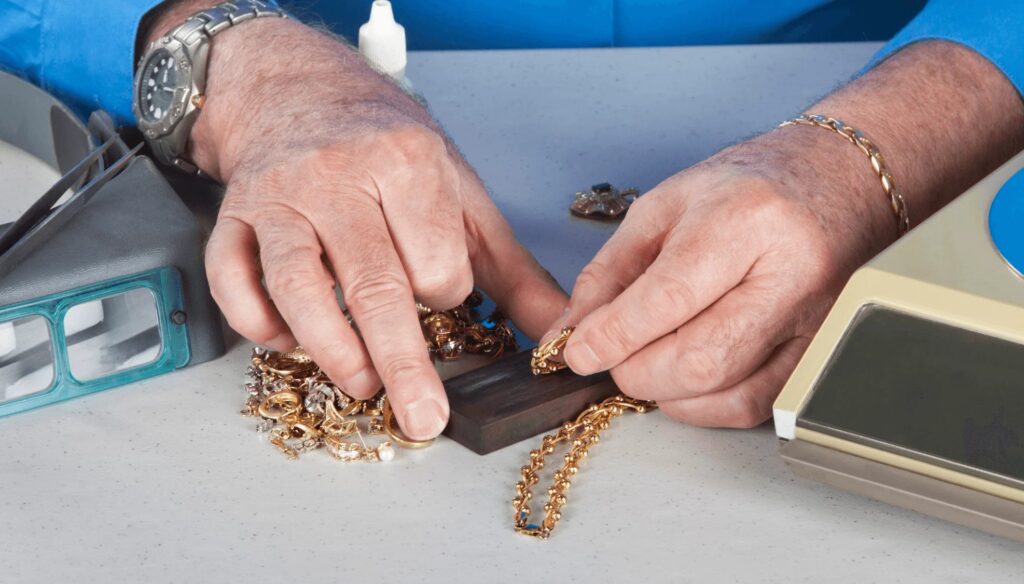
How to Identify Reliable Antique Jewelry Buyers
There are certain traits that separate reputable antique buyers from crooked scam artists, including:
#1. Reputation is everything to upstanding antique jewelry dealers
Legitimate buyers should be very well-known and have good honor by making their living through buying and selling vintage and antique pieces honestly.
They should be reliable and honest and be respectful when rubbing shoulders with other antique jewelry dealers in the industry, oftentimes on a regular basis, so that they can stand out with a pristine reputation.
They also have to build a clientele and have to work hard to secure it over the years. When you do business with an antique jewelry buyers who has the following benefits, you can feel sure they have a good reputation in the industry.
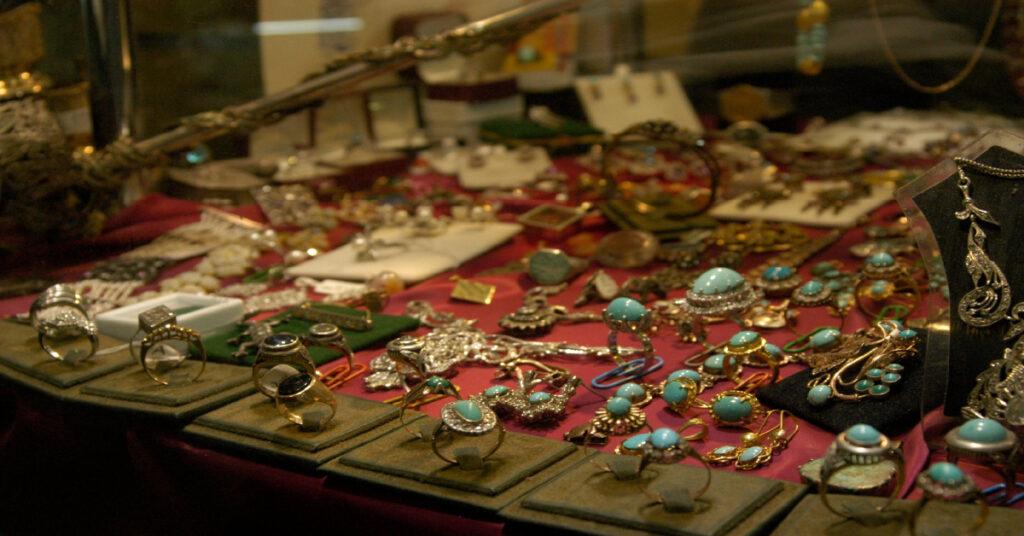
#2. The Best Antique Jewelry Dealers are Well-Established
When looking for a fine jewelry buyer worthy of your jewelry appraisal. Be sure to check to see how long the dealer has been in the area or online. Shady jewelry appraisers tend to creep around when they sniff an opportunity to rip you off and vanish as quickly as they can.
Also, those who use the internet to scam co-sellers are able to disappear more easily than those with brick and mortar stores, but be cautious of both types.
So, do your homework to be sure that your prospective antique jewelry dealer has been in the industry for enough time and has established their business with other dealers and with clients too.
Ask other buyers and sellers if they have heard of the dealer. Do research about jewelry appraisers by doing an online search for them, and if they have a physical shop, ask the local authorities about them.
You can also see if there are any complaints about the dealer registered with the Better Business Bureau.
#3. Your gut feelings are worth a fortune
“If I had only listened to my gut instinct”… How many times have you looked back with regret for not following your instinct? If you feel the ancient dealer is not on the up-and-up, then chances are that he/she isn’t the right dealer to trust.
Any red flag you encounter, no matter how insignificant it may seem at the time, should be worth paying attention to. It’s easy to get swept off your feet by a charming buyer or seller, and those who are up to no good thrive.
Even feeling rushed to make a decision is not alright. Reputable jewelry appraisers have no problem with you taking your time.
They are sensitive to your wants and needs. They realize selling isn’t always easy—emotionally or otherwise. If you don’t have a good gut feeling about a dealer, just walk away, and be sure to take your jewelry with you.
The Antique Jewelry Appraisal Process
Once you have done your own research and now is the time, how to get your jewelry appraised. Finding an appraiser you feel is reputable, the next step will be to go through the process of an appraisal to sell fine jewelry.
This is when you present your jewelry to the buyer. You will not only want to be assured that the dealer won’t take off your piece. You’ll want to be certain that he or she will be honest so that you’ll be offered a fair price for your treasure.
While there is no full-proof method to ensure the antique jewelry appraisers’ integrity, credibility, which is listed above. This will certainly narrow down the chances you’ll be taking and will increase the probability.
Hence, you’ll walk out of the appraisal session with a smile on your face and, hopefully, a little knowledge about how to appraise jewelry yourself & some expected amount or a check in your pocket as well.


